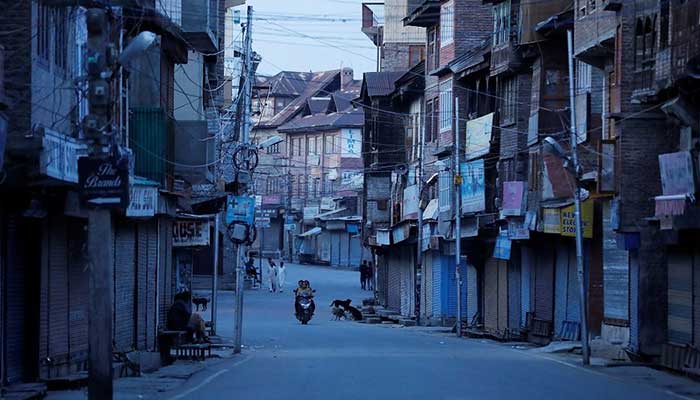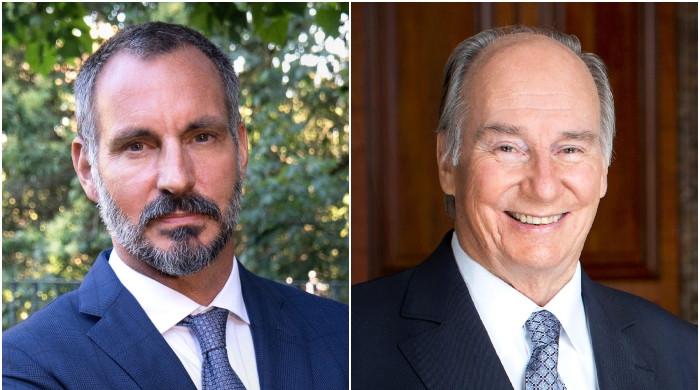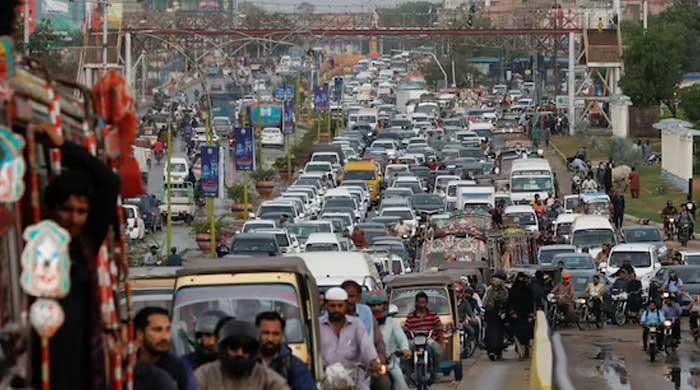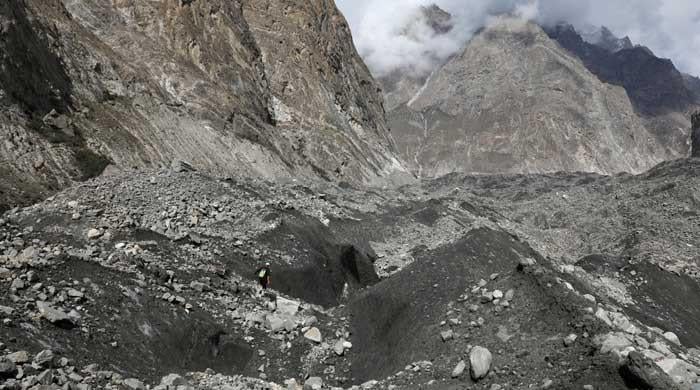Outrage for George Floyd, but none for Kashmir?
Though outrage has been expressed following Floyd’s death through ‘Black Lives Matter’ protests, there has not been the same response to the plight of Kashmiris
June 23, 2020

Much of the world has been under lockdown as a result of the COVID-19 pandemic, in which people have been isolated to their homes with limited face-to-face contact with loved ones and the outside world.
Such circumstances have had the effect of raising tensions, notably in the US, as the pent-up energy accumulated has caused underlying issues and prejudices to boil over. These events highlight pre-existing trends in human rights violations, including the excessive use of force by security and police personnel, which reflects ingrained racial, religious and national prejudices.
These trends are apparent in the US over the murder of George Floyd by police and the treatment of Kashmiris in Indian-occupied Kashmir. Despite these trends, the West has responded selectively. Though outrage has rightly been expressed following Floyd’s death through ‘Black Lives Matter’ protests, there has not been the same response to the plight of Kashmiris who have been under a wrongfully enforced lockdown.
“Neither our distance from a preventable evil nor the number of people who, in respect to that evil, are in the same situation as we are, lessens our obligation to mitigate or prevent that evil.”
- Peter Singer, ‘Famine, Affluence, and Morality’ (1972)
Peter Singer, a philosopher, argued that affluent countries are obliged to help those subject to “preventable evil,” regardless of distance, as long as something of equal moral significance is not sacrificed.
It is not only governments which, under Singer’s logic, are required to act but that the general population with the means to do so, ought to respond to injustices and do what they can to prevent such evil.
The current trends worldwide in the form of human rights violations are forms of this “preventable evil.”
The Western world has been rocked by the recent death of George Floyd, a black man in the US who died as a result of a white police officer using excessive force in detaining him. His death is a symptom of the systemic racism within US society in which numerous police officers have killed ethnic minorities with impunity.
Thankfully, those perpetrators were arrested and charged with his murder. Moreover, some good has come of this horrific death, as it led to protests worldwide and even the removal of statues celebrating slave traders in the UK. Thus, citizens of the UK for example, were moved to action by Floyd’s death to prevent further evils despite the geographical distance between the two countries.
But this trend of the excessive use of force by security personnel extends beyond the borders of the US. One example which has persisted for years is in Indian-occupied Kashmir.
Kashmiris have called for self-determination and instead have been met with brutality. Both the 2018 and 2019 reports by the Office for the United Nations High Commissioner for Human Rights allude to the excessive use of force as a violation of human rights in Kashmir, which has resulted in the majority of civilian deaths.
The similarities between these cases in the US and Kashmir are striking. The victims die because of the excessive use of force which is a disproportionate response by security forces to the actions of the victims. Just as the strangulation of George Floyd was not a proportionate response to his alleged crimes of using a counterfeit bill, innocent Kashmiris who protest for self-determination instead of subjugation are killed and brutalised; left with metal pellets scattered throughout their bodies.
However, there are disparities in the response by affluent countries to these two preventable evils. While the murder of George Floyd was rightly met with outrage worldwide, the same cannot be said of the human rights violations in Kashmir. Immediate action was taken in the wake of Floyd’s death, but Kashmir has been under lockdown since August 5, 2019, when India decided to revoke the special status of the valley.
Many countries have also been under lockdown due to the COVID-19 pandemic which should move those motivated by empathy to resonate with the Kashmiris and call for action.
It is important to note that the acceptance of the severity of the situation in Kashmir does nothing to demean the situation in the US. But the question remains: why have the human rights violations in Kashmir not been met with the same response in the West as the death of George Floyd when the cases are comparable?
One potential explanation is the communications blackout in Kashmir. Since the lockdown began, the Indian government has limited the access of Kashmiris to internet and mobile phone signals which has prevented the flow of information from Kashmir to the outside world. Foreign journalists have also not been permitted to enter and report on the situation. But this is not reason enough to ignore the human rights violations.
Many claim that ‘all lives matter,’ but the lack of concern for the imprisoned and tortured Kashmiris suggests that there is a disparity in Western concern for life based on location. Had these crimes been committed in the US or the UK, would the international community be so slow to act?
Western countries have long claimed a kind of moral superiority over other nations; invading and ‘intervening’ in other countries in the name of democracy or human rights. But the fight against human rights violations and prejudice requires a consistent approach in which the lives of those in South Asia, for example, are considered just as important as those in Europe or the US.
While George Floyd’s final words, “I can’t breathe,” powerfully echo across the globe, the cries of Kashmiris continue to be stifled. The championing of all human rights is not a mere fad that can be achieved by addressing only one issue that seems more relevant to us personally. Our responsibility as affluent and privileged countries is to all people. Ultimately, if we want our own people to be treated with humility and respect, we must extend the same concern to others.
Hunter has just completed her MTheol degree at the University of St Andrews in Scotland and now works as a researcher. She tweets @MaryFloraHunter











